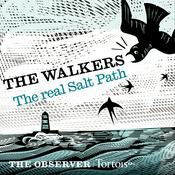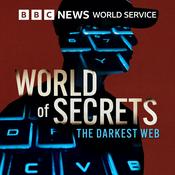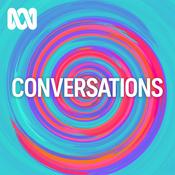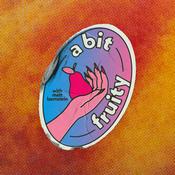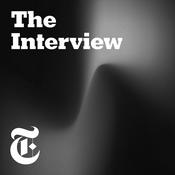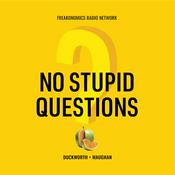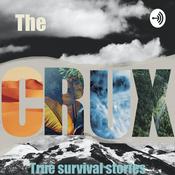485 episodes
- Meter tampering means altering a meter to prevent it from fully recording how much electricity or gas is being used, or bypassing the meter completely to energy usage being recorded at all. It may seem like a great idea, but there are consequences. It’s dangerous and it is a criminal offence. Its classified as theft and can lead to prison sentences and heavy fines.
The number of people illegally bypassing the grid to save money is increasing at an alarming rate. Its disturbingly simple to do but the consequences can be tragic. In May 2021, two-year-old George Hinds was killed when a gas explosion caused by tampering destroyed his home in Heysham, Lancs. The explosion was triggered by a neighbour cutting through pipes with an angle grinder. He was jailed last year for 15 years for manslaughter.
Crimestoppers UK say reports of gas and electricity theft have been rising sharply. In 2017 2,566 cases were reported and last year that figure rose to 10,694- though the industry believes the true figure may be closer to 200,000. Energy theft is not a new phenomenon but the cost of living crisis seems to be the main reason for this sharp increase.
Presenter Dan Whitworth meets gas engineers at the frontline and talks to industry insiders and to Ofgem, the energy regulator to find out what they are doing about it.
Producer: Mohini Patel - There Is a club that no high school principal in the USA wants to join, but they are all incredibly grateful that its there. Because in the event of the worst possible scenario happening, they will need it
The 'Principal Recovery Network' is made up of school leaders who have lived through the horror of a shooting in their hallways and classrooms. And in the hours after an incident they are on the phone helping the next school principal through their trauma
Sam Walker moved her family from Manchester to Arizona seven years ago and she still can't get used to her kids going through regular lockdown drills so they know what to do if their school is attacked
Sam meets some of the principals who have been through it and have come together to offer support - and now activism.
Presenter: Sam Walker
Production: Sam Walker and Richard McIlroy
Image: Frank DeAngelis, the former Principal of Columbine High School - In the mountains of Latakia, Syria, Mudar Salimeh devotes much of his time to searching for butterflies. A geologist, artist, and nature lover, Mudar's fascination with butterflies began in the spring of 2018 when a great number of caterpillars appeared in his art studio. Over time, the caterpillars transformed into a cloud of white butterflies, sparking Mudar's quest to find and document these beautiful, elusive creatures.
Syria's civil war has caused extensive ecological damage, affecting far more than just human lives. Then, in February 2023, an earthquake struck the region of Latakia.
Spring 2024 arrives and butterflies start to emerge, we join Mudar as he creates an encyclopedia of the different butterfly species in Western Syria - a task made challenging by the shadows of war.
Photo credit: Mudar Salimeh
From his blog: https://syrianbutterflies.wordpress.com/
Field Recordings by Mudar Salimeh
Music by Samer Saem Eldahr a.k.a. Hello Psychaleppo
https://www.psychaleppo.com/
Lepidoptera Sound Recordings: Maria Brænder
Produced by Nanna Hauge Kristensen
A Falling Tree production for BBC Radio 4 - Every 17 years in the eastern United States, a roaring mass of millions of black-bodied, red-eyed, thumb-length insects erupt from the ground. For a few glorious weeks the periodical cicadas cover the trees and the air vibrates with their chorus of come-hither calls. Then they leave a billion eggs to hatch and burrow into the dirt, beginning the seventeen year cycle all over again.
Sing. Fly. Mate. Die. This is Brood X or the Great Eastern Brood. It’s an event which, for the residents of a dozen or so US states, is the abiding memory of four, maybe five, summers of their lives.
In a programme that’s both a natural and a cultural history of the Great Eastern Brood we re-visit four Brood X years....1970, 1987, 2004 and 2021…. to capture the stories of the summers when the cicadas came to town.
Princeton University's Class of 1970 remember the cicadas’ appearance at their graduation ceremony, during a time of student unrest and protest against the Vietnam War; a bride looks back to the uninvited - but welcome - cicada guests attending her wedding; a musician recalls making al fresco music with Brood X; and an entomologist considers the extraordinary life cycle of an insect which is seems to possess both great patience and the ability to count to seventeen.
Brood X cicadas spend 17 years underground, each insect alone, waiting and listening. In 2021, as Brood X stirred and the air began to thicken with the cicadas’ love songs, we all shared with them that sense of emerging from the isolation of lockdown and making a new beginning.
Featuring: Elias Bonaros, Liz Dugan, Anisa George, Ray Gibbons, Peter Kuper, Gene Kritsky, Gregg Lange, David Rothenberg, Gil Schrage and Gaye Williams
Producer: Jeremy Grange
Cicada audio recorded by Cicada Mania and David Rothenberg
Programme Image: Prof. Gene Kritsky - When Bury FC was expelled from the Football League after 125 years, the government commissioned a fan-led review of football's financial stability. Centring the importance of football clubs to hundreds of local communities, it recommended tough new rules about governance and ownership of football clubs. Five years on and with both Labour and the Conservatives supporting the creation of a new regulator, Scunthorpe United has become a case study for why politicians think they need to step in. A succession of owners, a string of relegations and a more than gloomy balance book left the North Lincolnshire town wondering what life without its football club might look like. But the efforts of the local community led to a small piece of hope. For Radio 4, lifelong Scunthorpe fan and BBC political journalist (in that order) Jack Fenwick tells the inside story of how it all went so wrong and what happened next.
Presenter and producer: Jack Fenwick
More Society & Culture podcasts
Trending Society & Culture podcasts
About Seriously...
Seriously is home to the world’s best audio documentaries and podcast recommendations. Introduced by Vanessa Kisuule. This feed is no longer being updated. Thanks for listening.
Podcast websiteListen to Seriously..., The Walkers: The real Salt Path | Tortoise Investigates and many other podcasts from around the world with the radio.net app

Get the free radio.net app
- Stations and podcasts to bookmark
- Stream via Wi-Fi or Bluetooth
- Supports Carplay & Android Auto
- Many other app features
Get the free radio.net app
- Stations and podcasts to bookmark
- Stream via Wi-Fi or Bluetooth
- Supports Carplay & Android Auto
- Many other app features


Seriously...
Scan code,
download the app,
start listening.
download the app,
start listening.


